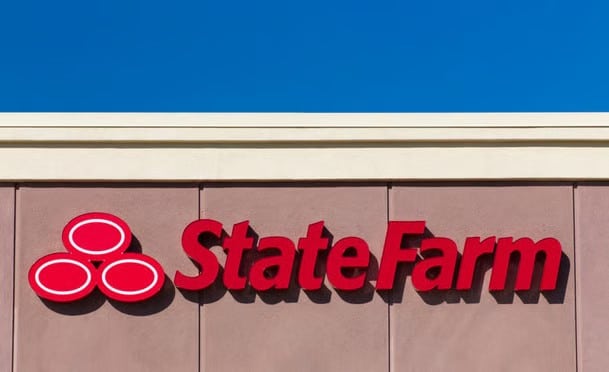
In a story that reads more like a John Grisham novel than real life, State Farm has settled a racketeering class action lawsuit for $250 million, exposing allegations of corporate influence in judicial elections in Illinois. The settlement, approved preliminarily by U.S. District Judge David Herndon of East St. Louis, highlights how a major insurance company may have used political contributions to shape the outcome of a state Supreme Court election.
The Allegations
The lawsuit stems from a long-running consumer fraud class action filed by State Farm policyholders. In 2001, an intermediate appellate court upheld a $1.06 billion judgment against State Farm for refusing to pay for original parts on car repairs. State Farm appealed to the Illinois Supreme Court, and during the appeal, the 2004 campaign for an open seat on the state high court became central to the allegations.
The plaintiffs’ amended complaint asserts that State Farm leveraged its influence over nonprofits such as the U.S. Chamber of Commerce and the Illinois Civil Justice League (ICJL) to help elect Lloyd Karmeier to the Supreme Court. Within a year of his election, Karmeier joined four other justices in overturning the billion-dollar judgment against State Farm. The RICO complaint alleges a quid pro quo between the insurance company and the newly elected justice.
The Mechanics of Influence
The complaint details how nearly $4 million in contributions supporting Karmeier’s 2004 campaign can be traced back to State Farm’s influence:
- ICJL contributions: About $719,000 of ICJL operating expenditures were considered in-kind contributions influenced by State Farm.
- U.S. Chamber of Commerce: State Farm allegedly donated $1 million to the national business group, which contributed to the Illinois Republican Party and indirectly supported Karmeier.
- Steered corporate donations: Another $1 million came via corporate donors directed by State Farm executives.
Plaintiffs argued that nearly 90% of Karmeier’s reported $4.8 million campaign war chest originated from State Farm’s influence.
The Settlement and Reactions
State Farm maintains that the claims are meritless and settled the lawsuit solely to end the litigation. Nonetheless, plaintiffs and their attorney, Robert Clifford, argue that the case exposes the troubling role of “dark money” in judicial elections. Clifford noted:
“We learned a lot about dark money in America. The U.S. Chamber of Commerce, the Institute for Legal Reform – this is their mission. It’s wild.”
The settlement received preliminary approval on the same day it was announced, with a final approval hearing scheduled for December.
Broader Implications
While the allegations are specific to Illinois, Clifford warns that the influence of corporate money in judicial elections is a nationwide concern. Without campaign finance reform, such practices may remain legal yet insidious:
“It may not be illegal. It may be insidious. It may have a smell to it. But it’s not illegal. People need to know.”
This case highlights the intersection of corporate power, nonprofit influence, and the judicial system, raising questions about transparency and accountability in state-level elections.
What This Means for Consumers and the Legal System
The $250 million settlement not only resolves a decades-long dispute but also shines a light on how corporate entities may attempt to influence judicial outcomes. For consumers and policyholders, it’s a reminder of the importance of legal oversight, accountability, and advocacy to ensure fairness in both civil litigation and judicial elections.
About Ted Law Firm
While this case involved national insurers and state courts, anyone facing complex personal injury or corporate disputes in Georgia or South Carolina can rely on experienced attorneys to navigate the legal system. At Ted Law Firm, we help clients secure compensation, hold responsible parties accountable, and provide guidance through complicated cases.Contact us today for a free consultation, and let our team help you protect your rights and pursue justice.
